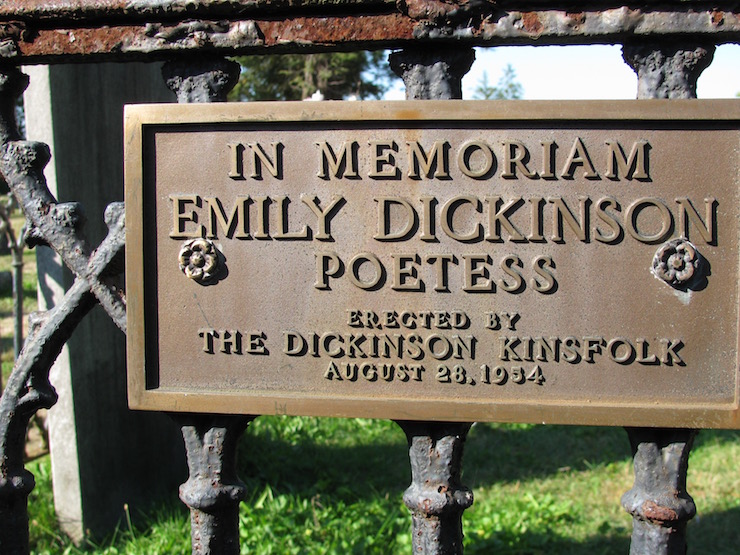< Return to Emily Dickinson Poems
XIII. The Oriole
THE ORIOLE.
One of the ones that Midas touched,
Who failed to touch us all,
Was that confiding prodigal,
The blissful oriole.
So drunk, he disavows it
With badinage divine;
So dazzling, we mistake him
For an alighting mine.
A pleader, a dissembler,
An epicure, a thief, —
Betimes an oratorio,
An ecstasy in chief;
The Jesuit of orchards,
He cheats as he enchants
Of an entire attar
For his decamping wants.
The splendor of a Burmah,
The meteor of birds,
Departing like a pageant
Of ballads and of bards.
I never thought that Jason sought
For any golden fleece;
But then I am a rural man,
With thoughts that make for peace.
But if there were a Jason,
Tradition suffer me
Behold his lost emolument
Upon the apple-tree.
-Emily Dickinson
Enjoy Artistic Representations of “The Orilole” by Emily Dickinson
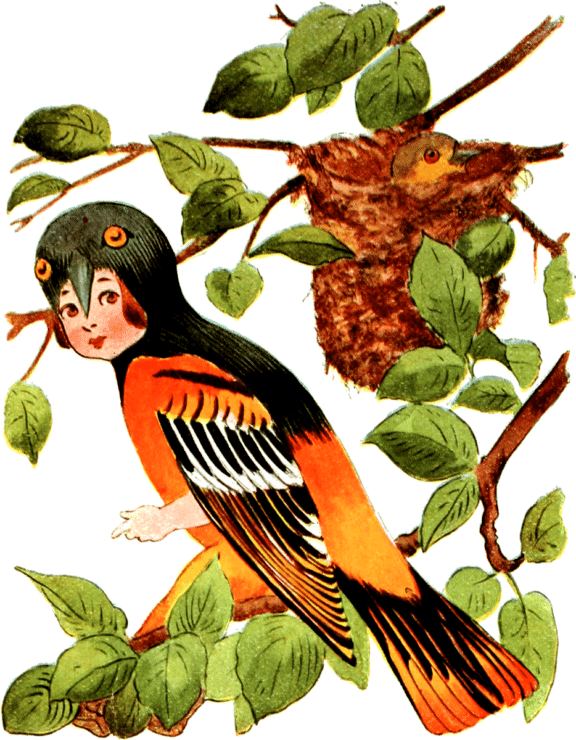
Baltimore Oriole Plate No. 19, from Bird children, the little playmates of the flower children by Elizabeth Gordon, 1912.
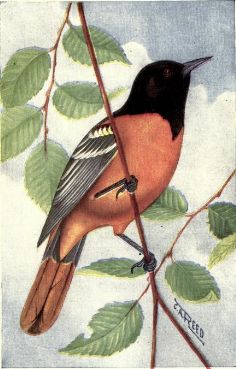
Baltimore Oriole by Chester A. Reed, 1914.
Listen to this Reading of “The Orilole”
Listen to these Musical Interpretations of “The Orilole” by Emily Dickinson
About Emily Dickinson
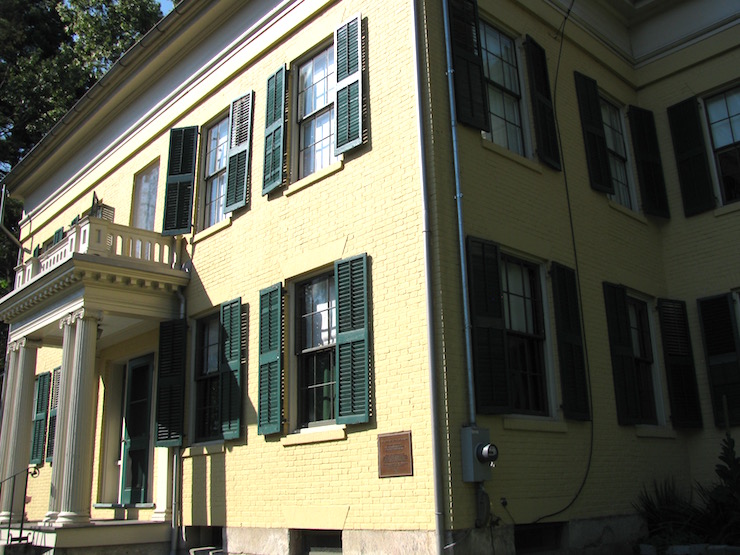
Emily Dickinson estate in Amherst Massachusetts
Emily Dickinson was born in Amherst, MA, in 1830, the daughter of state and federal politician Edward Dickinson. A prolific poet, Dickinson was known to draft poems on the backs of envelopes and chocolate wrappers. Nearly 1800 of her poems were discovered by her family following her death, many in 40 handbound volumes she had sewn together, written in her own hand with her famously unorthodox punctuation.
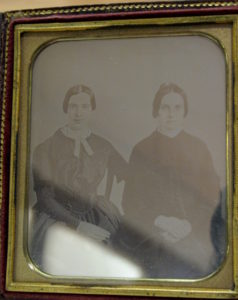
Emily Dickinson & Susan Gilbert
The enigmatic poet is remembered as a recluse, rarely leaving the Dickinson estate. While she did receive callers at her home, conversations were often held from opposite sides of a closed door.
She lived with her sister, Lavinia, while her brother Austin and his wife, Susan Gilbert, lived down a narrow path on the property. Her writing reflects profound loneliness as well as a deep capacity for love and affection, much of which is believed to have been shared with Gilbert.
Her first collection of poems, Poems by Emily Dickinson, was published four years after her death, with Poems: Second Series and Poems: Third Series following in the next several years.
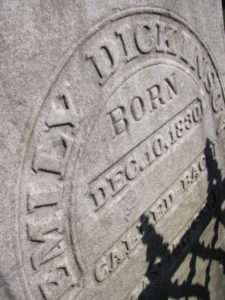
“Called Back”
Like Walt Whitman (who she reportedly never read), she is considered one of the most influential poets in the emergence of a distinctly American poetic voice.
She was born on December 10, 1830, and today visitors to Emily Dickinson’s grave can witness a lasting image of her perspective on life. The etching on her stone marking the date of her death—May 15, 1886—bears the words “Called Back.”
< Return to Emily Dickinson Poems
Get Every Day Poems, free…
